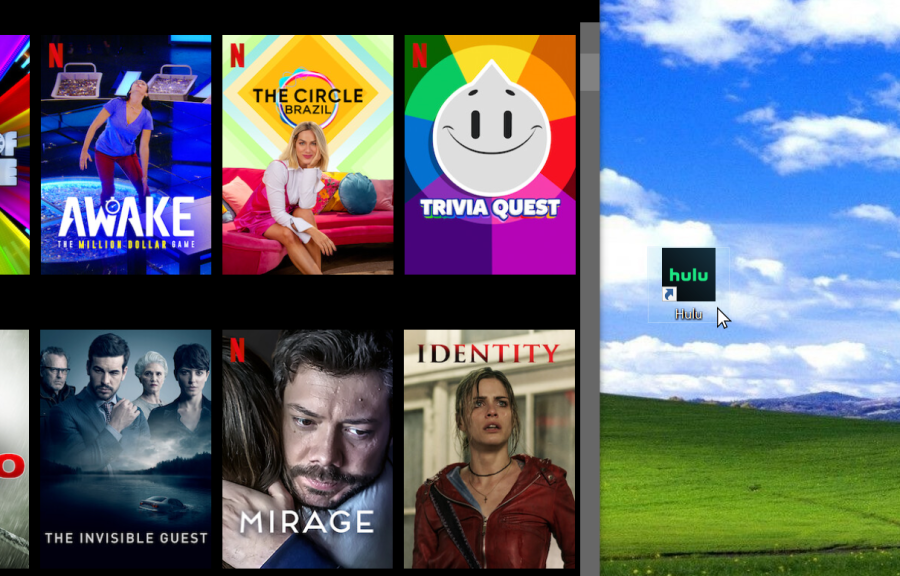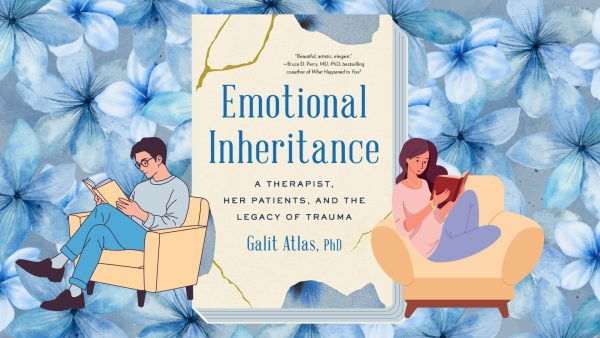Netflix: When the streaming champion falls
Other services besides Netflix usually tend to be better streaming alternatives.
Sitting down at home in a slouch, you click on the TV in an attempt to relax with some Netflix. After all, what are you paying all that money for, especially given the price increase this March? Browsing through the movies, you try to find that movie you’ve had on your mind all last week. Instead, you can only find more originals due to the latest shift in the streaming marketplace.
Many of us may not even remember when Netflix was a disc-rental service similar to a mail-order Redbox back in 1999, housing some blockbusters for rental just a few months after release. However, even if we weren’t there to experience its start, we now know it as the big (and expensive) streaming platform that gave way for “Squid Game” and “La Casa De Papel” both of which took the internet by storm.
Although the streaming giant may be known for its original movies and series now, it had humble beginnings as an extension to their DVD rental service in 2007 (a version of which is still available!) The streaming site would feature only 1000 titles and be limited by the DVD plan the user was subscribed to, being one hour of video for every dollar spent ($7.99 = 8 hours). This would be their model until 2010 with an unlimited streaming plan without their DVD counterpart which has held on till today with their three more popular subscription plans.
Edward Valenzuela, advisor of the film club, even remembers the disc rental service model.
“You know, I never did the DVD and streaming, but I used to do the DVD. And what was cool about that is you order the movie and it came to you the next day,” he said.
However, even with all the monthly subscribers and brand recognition Netflix just had their stock drop 35% as of April 20. Just these past two years, amidst the COVID-19 pandemic, Netflix faced a boom in popularity due to everyone stuck at home. So what was causing Netflix to suddenly start tanking in stock price and take a 200,000 subscriber drop?
People tend to point at a few different changes to be the reason for Netflix losing subscribers so quickly: the loss of licensed content, surge of originals and TV shows and the wave of other streaming competitors.
One of the most important changes to Netflix is one which has evolved into the reason some have planned to drop the service altogether: the originals, exclusive content only found on Netflix.
In 2012, Netflix started pushing into being more independent as an entertainment company, creating its own content in the form of “Lilyhammer” in 2012. Since then, Netflix has not slowed down the train of this original content, adapting previously existing work into movie series much like “The Kissing Booth,” or “13 Reasons Why.”
While these originals do not serve the initial use of Netflix, being able to rent/stream well-known blockbuster content, many have made a cultural impact. “Stranger Things” and “Squid Game,” both licensed for streaming by Netflix, became a big pop-culture craze which still hold out today.
Although, even as this is true of some originals, movies such as the “Kissing Booth” series are often ridiculed for their take on drama and romance and only truly watched or binged for the sake of “hate-watching,” viewing something solely for the sake of understanding the surrounding criticism, or viewing to see how bad a movie or show is.
When Netflix first started their streaming site, it did have a few shows such as “Friends,” but also carried movies like “Casablanca.” Soon, Netflix would become the go-to streaming service for watching some of your favorite shows immediately and whenever you want.
In recent time, logging onto Netflix will show many recognizable shows and movies but in an incomplete state. This means that some movie series like “Underworld” will only contain the first, third and final movies in the series. This issue bothers viewers who are a fan of binging or even just casual watching of their favorite shows as senior Syed Ali Naqvi.
“I don’t like that we pay so much and they remove shows on the daily, and don’t even have a good selection to begin with. They also don’t have the entirety of shows, they sometimes only have one season or end off randomly,” he said.
Many who were once subscribers of Netflix, have since dropped the service in favor of other cheaper streaming alternatives. One of the biggest competitors as of now include Hulu, Disney+ and Amazon Prime to an extent. Even smaller competitors such as Roku and Vudu have impacted customers such as Valenzuela.
“I usually use Vudu, Roku and YouTube when I watch my shows, but I’m not interested in a YouTube subscription. I’m okay with watching ads on Roku and YouTube if they’re 30 seconds,” he said.
Students like Naqvi and his family also understand the better options available to them even if it means turning away from a long-held streaming service.
“[Netflix] was the first streaming service for my family and my family does watch a majority of the content, though, we do notice that it doesn’t have the best selection and we do end up using other services as a result,” he said.
Even though Netflix spends so much money on their current catalog, competitors which have access to their own content such as Disney+ or Paramount+ have a more recognizable lineup which they don’t have to pay licensing to stream.
As Netflix continues to drop down in stock value they have announced many different changes they were planning for their streaming endeavors such as an addition of ads as well as removing the ability to share passwords because everyone who wants Netflix already has it in some way, whether they pay $15/month or not.
Naqvi said, “I don’t think I’d really miss out if I didn’t have Netflix. At the same time, they have a few things I’ve enjoyed watching, but I wouldn’t care too much if I didn’t have it.”

I love drawing in my sketchbook, deep-diving into random topics, and I’ve 100%’d two lego games in the past (Lego Indiana Jones ½ and The Lego...





































